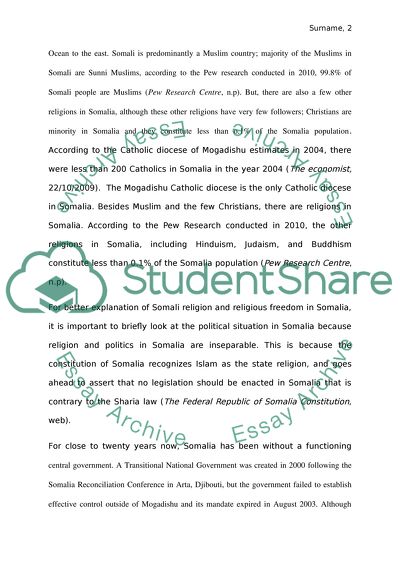Cite this document
(“Discuss religion and religious freedom in Somalia Essay”, n.d.)
Discuss religion and religious freedom in Somalia Essay. Retrieved from https://studentshare.org/religion-and-theology/1635849-discuss-religion-and-religious-freedom-in-somalia
Discuss religion and religious freedom in Somalia Essay. Retrieved from https://studentshare.org/religion-and-theology/1635849-discuss-religion-and-religious-freedom-in-somalia
(Discuss Religion and Religious Freedom in Somalia Essay)
Discuss Religion and Religious Freedom in Somalia Essay. https://studentshare.org/religion-and-theology/1635849-discuss-religion-and-religious-freedom-in-somalia.
Discuss Religion and Religious Freedom in Somalia Essay. https://studentshare.org/religion-and-theology/1635849-discuss-religion-and-religious-freedom-in-somalia.
“Discuss Religion and Religious Freedom in Somalia Essay”, n.d. https://studentshare.org/religion-and-theology/1635849-discuss-religion-and-religious-freedom-in-somalia.


